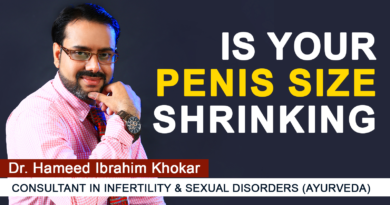When Should I have Sex to become Pregnant
Understanding the optimal timing for conception is crucial for couples trying to conceive. One of the most common questions that arise is, “When should I have sex to become pregnant?” The answer lies in comprehending the female reproductive cycle and identifying the most fertile window. In this article, we delve into the intricacies of fertility timing, offering guidance on maximizing your chances of conception.
The Menstrual Cycle and Ovulation
The menstrual cycle, typically lasting around 28 days, is divided into several phases. The most fertile time occurs when the ovary releases an egg. It normally happens in the middle of the period cycle, about 14 days before the next period starts. Identifying this window is crucial for couples aiming to conceive.
You will be Interested on : Female Infertility Treatment In Hyderabad
Tracking Ovulation
There are various methods to track ovulation. One popular approach is monitoring changes in basal body temperature, which rises slightly after ovulation. Additionally, ovulation predictor kits can help pinpoint the fertile window by detecting the surge in luteinizing hormone (LH) that precedes ovulation. Cervical mucus changes, becoming clear and stretchy, are another indicator of ovulation.
Timing Intercourse
To maximize the chances of conception, couples should aim to have intercourse during the days leading up to ovulation and on the day of ovulation itself. Sperm can survive in the female reproductive tract for several days, so having intercourse in the days before ovulation ensures that sperm are present when the egg is released.
Factors Affecting Fertility Timing
While understanding ovulation is key, several factors can influence fertility timing. These include the length and regularity of the menstrual cycle, age, underlying health conditions, and lifestyle factors such as diet and stress levels. Couples should consider these factors when planning conception.
Keep reading : Female Infertility Treatment In Guwahati
The Role of Stress
Stress can make it harder to get pregnant because it can mess up hormone levels and menstrual patterns. High levels of stress can interfere with ovulation, making conception more challenging. Engaging in relaxation techniques such as yoga, meditation, or deep breathing exercises may help reduce stress and improve fertility.
Nutrition and Lifestyle
Keeping up a healthy lifestyle is important for getting pregnant. A balanced diet rich in fruits, vegetables, whole grains, and lean proteins provides essential nutrients that support reproductive health. Avoiding excessive alcohol consumption, smoking, and illicit drug use is also important, as these can negatively affect fertility.
You will be Interested on : Ayurveda Infertility Treatment in Hyderabad
Medical Assistance
If conception does not occur after several months of trying, couples may consider seeking medical assistance. A fertility expert can do tests to find any problems at the root and suggest the best ways to treat them.

Conclusion
Determining the optimal timing for conception involves understanding the menstrual cycle, tracking ovulation, and considering various factors that influence fertility. By timing intercourse correctly and addressing lifestyle factors that affect fertility, couples can increase their chances of conceiving. However, if conception proves elusive, seeking medical advice is advisable to explore further options. Remember, patience and perseverance are key on the journey to parenthood.
Keep reading : Ayurveda Infertility Treatment in Guwahati
For Online Consultation Call or WhatsApp +91-9995202100
Fill up Quick Online Consultation form





